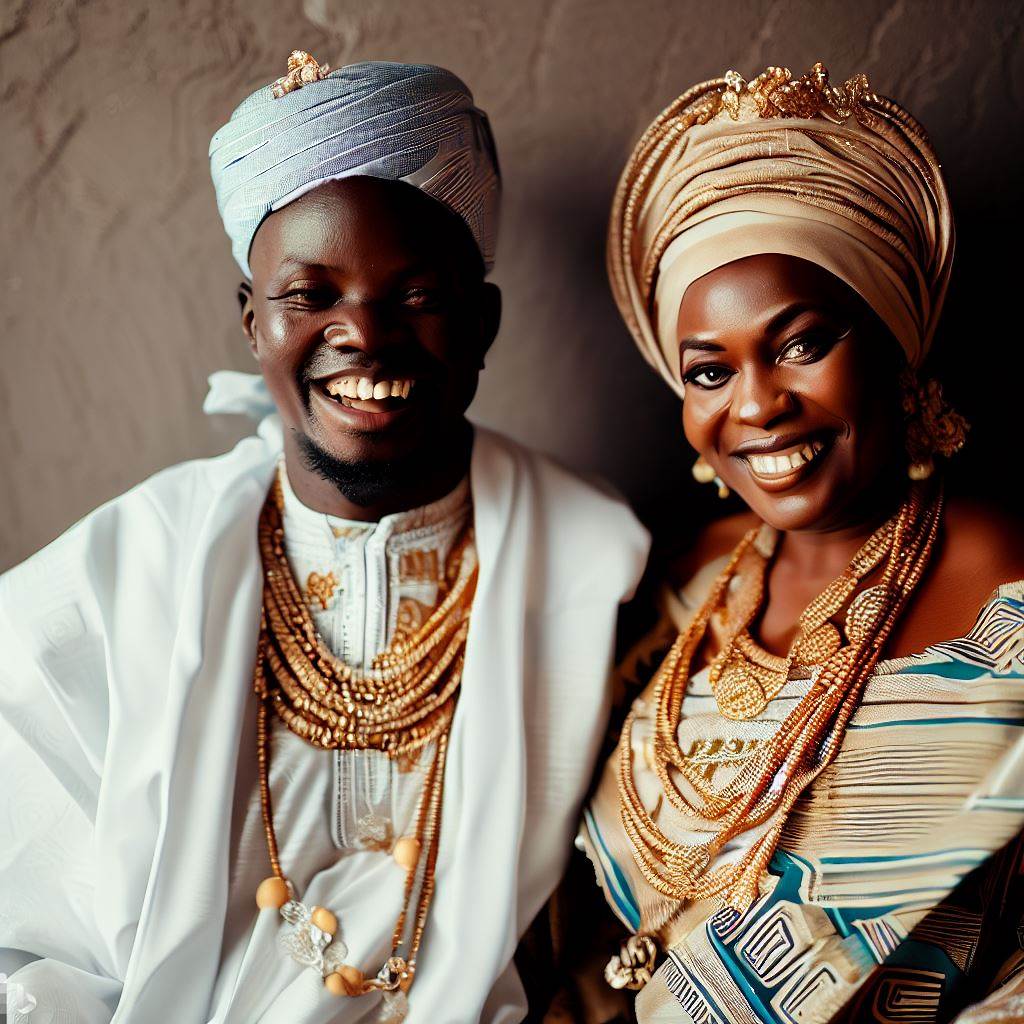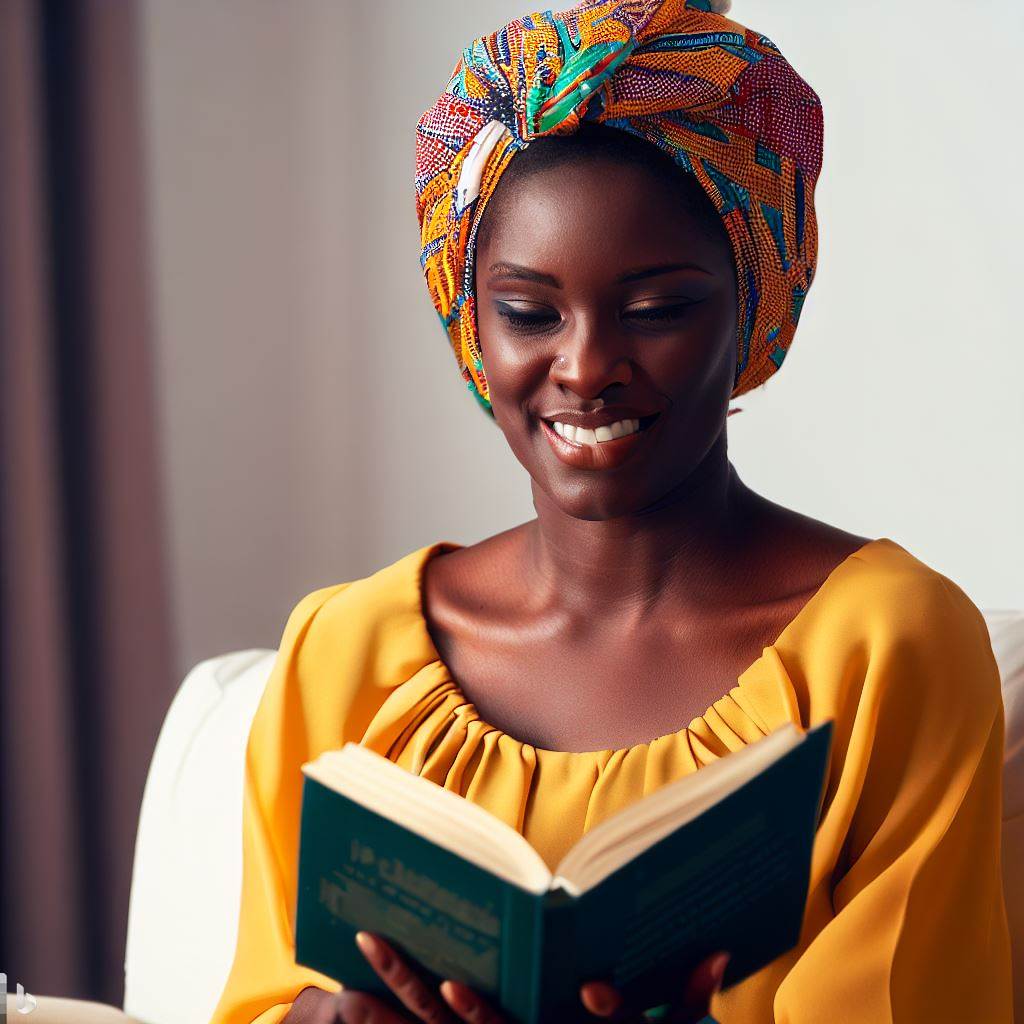Introduction
Culture plays a crucial role in Nigerian Marriage & Family Therapy (NMFT) as it shapes beliefs, values, and practices within the therapeutic process.
Understanding the influence of culture in NMFT is essential to ensure effective therapy for Nigerian families, as their cultural background significantly impacts their beliefs about marriage and family dynamics.
The Role of Culture in Nigerian Marriage & Family Therapy (NMFT)
Culture in NMFT encompasses various aspects, including religion, language, gender roles, and traditional customs, which strongly influence clients’ perceptions, problems, and expectations in therapy.
Culture shapes the way individuals interact within family systems and affects their attitudes towards seeking therapy.
Definition and Explanation of NMFT
Nigerian Marriage & Family Therapy (NMFT) is a vital aspect of Nigerian society, playing a crucial role in promoting healthy relationships and resolving conflicts within families.
This section aims to define and explain NMFT, discuss its importance in Nigerian society, and highlight its unique characteristics compared to Western approaches.
Definition of Nigerian Marriage & Family Therapy (NMFT)
NMFT refers to the therapeutic approach specifically designed to address the unique cultural and contextual factors influencing Nigerian marriages and families.
It incorporates traditional norms, values, beliefs, and practices into therapeutic interventions.
Nigerian Marriage & Family Therapy (NMFT) is a culturally-sensitive therapeutic approach that helps couples and families navigate challenges within the context of Nigerian culture.
Importance of NMFT in Nigerian society
NMFT plays a crucial role in Nigerian society as it supports the preservation and enhancement of traditional values, societal norms, and cultural practices that are deeply ingrained in the fabric of Nigerian marriages and families.
By addressing the cultural factors, it assists in cultivating healthier familial relationships.
Unique characteristics of NMFT compared to Western approaches
- Emphasis on extended family dynamics: NMFT recognizes the influential role extended family members play in Nigerian households, often involving them in therapy sessions to strengthen familial bonds and resolve issues collectively.
- Traditional rituals and ceremonies: NMFT acknowledges the significance of traditional rituals and ceremonies in Nigerian marriages and families. Therapists may work alongside traditional leaders to integrate these practices into the therapeutic process.
- Spirituality and religious beliefs: Nigerian culture is intertwined with spirituality and religious beliefs. NMFT acknowledges and incorporates these aspects, utilizing them to provide holistic healing and guidance to couples and families.
- Respect for age and hierarchy: Nigerian culture places great importance on respect for elders and maintaining hierarchical structures within families.
NMFT recognizes these dynamics and promotes effective communication and conflict resolution within the context of this cultural framework. - Collectivist approach: Unlike Western models, NMFT takes a collectivist approach, prioritizing the importance of the community and family unit over individualistic values.
This approach helps individuals understand their roles and responsibilities within the larger family structure.
Basically, Nigerian Marriage & Family Therapy (NMFT) is a culturally-sensitive therapeutic approach that addresses the unique challenges faced by Nigerian marriages and families.
Its importance in Nigerian society lies in its ability to promote healthy relationships, preserve cultural values, and utilize traditional practices to enhance individuals’ well-being within the context of their cultural framework.
NMFT’s unique characteristics distinguish it from Western approaches, allowing for a more holistic and effective therapeutic experience for Nigerian families.
Read: Trauma Counseling in Nigeria: A Deep Dive
Nigerian Culture and its Influence on Marriage and Family Dynamics
In Nigerian society, culture plays a significant role in shaping and influencing marriage and family dynamics.
The country is culturally diverse, with over 250 ethnic groups, each having its own unique customs, values, and beliefs.
Let’s take a deeper look at the key cultural norms, values, and beliefs in Nigeria and analyze how these aspects shape attitudes towards marriage and family.
Marriage is regarded as the most important institution
First and foremost, marriage is highly regarded and considered one of the most important institutions in Nigerian culture.
It is seen as a sacred bond between two individuals and their families.
Traditional practices and rituals, such as dowry payment and elaborate wedding ceremonies, are often an integral part of the marriage process.
Concept of collectivism
One of the key cultural aspects that significantly influences Nigerian marriages is the concept of collectivism. In Nigerian culture, the well-being of the family is prioritized over individual desires.
Marriage is not just a union between two individuals but between two families, forming an extended family structure.
Extended family structures and kinship networks play a vital role in Nigerian marriages.
In Nigeria, it is common for married couples to live with their extended family members, including parents, siblings, and even distant relatives.
This close-knit living arrangement fosters strong intergenerational relationships and support systems.
High value on respect for elders and authority figures
Furthermore, Nigerian culture places a high value on respect for elders and authority figures.
In the context of marriage and family therapy, this means that decisions and conflicts within the family are often mediated or resolved by older family members, such as parents or grandparents.
They are seen as wise and experienced individuals who can guide the younger generations in making important life choices.
Gender roles and expectations
Gender roles and expectations also play a significant role in Nigerian marriage and family dynamics.
Traditional gender roles tend to be more patriarchal, with men being seen as the head of the household and having decision-making power.
However, with modernization and globalization, these roles are gradually shifting, and more women are working outside the home and taking on leadership positions.
Religion
Religion also greatly influences marriage and family dynamics in Nigeria.
The majority of Nigerians are either Christian or Muslim, and religious beliefs and practices often shape individuals’ attitudes towards marriage, family planning, and divorce.
Religious leaders and institutions play a crucial role in providing guidance and counseling on marital issues.
It is important to note that while Nigerian culture exerts a strong influence on marriage and family dynamics, there is also considerable diversity within the country.
Different regions and ethnic groups may have their own variations and interpretations of cultural norms and practices.
In short, Nigerian culture and its various aspects, such as collectivism, extended family structures, respect for elders, gender roles, and religious beliefs, significantly shape attitudes towards marriage and family.
Recognizing and understanding these cultural influences is crucial for marriage and family therapists working with Nigerian clients, as it allows them to provide culturally sensitive and appropriate interventions and support.
Read: Counseling in Nigeria: Current Trends and Future
The Role of Culture in Nigerian Marriage & Family Therapy
Marriage and family therapy in Nigeria is heavily influenced by cultural factors, which play a significant role in shaping therapeutic interventions and outcomes.
Cultural competence is essential for therapists practicing in Nigeria, as it allows them to understand and address the unique needs and challenges of their clients.
However, incorporating culture into therapy practices can also present various challenges.
This section explores the role of culture in Nigerian marriage and family therapy, the significance of cultural competence, and the challenges and implications of incorporating culture into therapeutic interventions.
Significance of Cultural Competence in NMFT
In Nigerian marriage and family therapy, cultural competence is crucial for understanding the values, beliefs, and practices that shape individuals and families.
Therapists must possess cultural knowledge, awareness, and sensitivity to effectively engage with clients.
The significance of cultural competence lies in its ability to facilitate a deeper understanding of clients’ experiences and concerns.
It allows therapists to tailor interventions specifically to address clients’ cultural needs, ultimately promoting better therapeutic outcomes.
Challenges in Incorporating Culture into Therapy Practices
While cultural competence is vital, there are several challenges that arise when incorporating culture into therapy practices in Nigeria.
One challenge is the diversity of cultures within the country. Nigeria consists of numerous ethnic groups, each with its distinct cultural practices, beliefs, and values.
Therapists must navigate this diversity, ensuring that their interventions are inclusive and sensitive to clients’ specific cultural backgrounds.
Additionally, the rapidly changing cultural landscape, influenced by globalization and modernization, poses another challenge in incorporating traditional cultural practices into therapy.
Cultural Factors Influencing Therapeutic Interventions
Several examples highlight how cultural factors significantly influence therapeutic interventions in Nigerian marriage and family therapy.
For instance, the extended family system, prevalent in Nigerian culture, affects therapy outcomes.
Therapists must understand and involve extended family members in treatment to address relational issues effectively.
Also, cultural beliefs about mental health and help-seeking behaviors impact clients’ willingness to engage in therapy.
It is important for therapists to be aware of these cultural factors to create tailored interventions that align with clients’ belief systems and preferences.
Culturally Sensitive Approaches and Implications for Therapy Outcomes
The need for culturally sensitive approaches in Nigerian marriage and family therapy cannot be overstated.
Adopting a culturally sensitive approach ensures that therapy is respectful and responsive to clients’ cultural values, practices, and beliefs.
This approach leads to increased client engagement, enhanced therapeutic alliance, and improved therapy outcomes.
Culturally sensitive approaches also empower clients by validating their cultural identity and providing a safe space for exploring cultural conflicts or challenges within their relationships and families.
Ultimately, incorporating cultural competence and sensitivity in therapy practices leads to more effective and meaningful therapeutic experiences for Nigerian clients.
Essentially, culture plays a vital role in Nigerian marriage and family therapy. Therapists must possess cultural competence to understand and address clients’ unique needs adequately.
However, incorporating culture into therapy practices presents challenges due to the diversity of cultures within Nigeria and the impact of globalization.
Cultural factors significantly influence therapeutic interventions and outcomes.
Adopting culturally sensitive approaches is essential for providing effective therapy and ensuring positive outcomes for Nigerian clients.
Read: In Their Shoes: Day in a Life of a Nigerian Physical Therapist

Cultural Rituals and Ceremonies Related to Marriage and Family
Cultural rituals and ceremonies play a significant role in Nigerian marriage and family therapy.
Nigeria is a diverse country with various ethnic groups, each having its unique traditions and customs.
Traditional Nigerian marriage ceremonies and rituals
Traditional Nigerian marriage ceremonies are elaborate and involve multiple rituals and ceremonies.
One of the most important rituals is the payment of bride price, which symbolizes the groom’s commitment.
This cultural practice shows respect for the bride’s family and signifies the union of two families.
Other rituals include the exchange of gifts, traditional dances, and the pouring of libations to ancestors.
The role of cultural ceremonies in preserving family unity and values
These rituals and ceremonies add a sense of belonging and unity within the family structure.
They reinforce the importance of family values and provide a foundation for successful marriages.
By preserving these cultural ceremonies, Nigerian families can maintain their traditions and pass them down to future generations.
Incorporating these ceremonies into therapy sessions can be beneficial for both the therapist and the clients.
Firstly, these rituals create a cultural connection between the therapist and the clients.
Therapists who understand and appreciate Nigerian culture can build trust and rapport with their clients.
They can use these rituals as a starting point for discussions about family dynamics, values, and relationships.
For example, the therapist can encourage clients to engage in traditional practices such as family meals or storytelling.
This can help strengthen family bonds, improve communication, and resolve conflicts.
How therapists can incorporate these rituals into therapeutic interventions
Additionally, therapists can incorporate these rituals into therapeutic interventions.
They can use symbolic gestures during sessions to address specific issues or promote healing.
For instance, the therapist may suggest creating a family altar to honor ancestors and foster unity.
This ritual can serve as a reminder of the interconnectedness of family members and their roles in the family system.
Furthermore, therapists can educate clients about the significance of these rituals and their impact on family dynamics.
By understanding the cultural context, clients can gain insights into their own behaviors and relationships.
Therapists can also collaborate with community elders or cultural experts to ensure the authenticity and effectiveness of these interventions.
However, it is essential for therapists to approach these rituals with respect and sensitivity.
They should avoid cultural appropriation and be mindful of the cultural beliefs and practices of their clients.
Overall, the role of culture in Nigerian marriage and family therapy cannot be underestimated.
By embracing and incorporating cultural rituals into therapeutic interventions, therapists can enhance the effectiveness of their work.
These rituals not only preserve family unity and values but also provide a foundation for healing and growth.
As Nigerian families continue to navigate the complexities of modern life, cultural rituals remain a powerful tool in promoting healthy relationships and overall well-being.
Read: The Evolving Role of Physical Therapist in Nigeria’s Sports Medicine
Cultural Conflicts and Their Impact on Therapy
In Nigerian marriage and family therapy, cultural conflicts can have a significant impact on the therapeutic process.
These conflicts arise when there is a clash between the values and beliefs of traditional Nigerian culture and the modern influences that pervade society.
Addressing Potential Conflicts
Therapists must be aware of the potential conflicts that may arise between traditional cultural values and the influences of modern society.
They should understand the cultural context in which their clients live and the values that govern their worldview.
Navigating Cultural Conflicts
Navigating cultural conflicts can be challenging for therapists.
They must maintain a delicate balance between respecting their clients’ cultural values and promoting positive change.
This requires understanding the nuances of cultural norms and the impact they have on individuals and families.
Challenges Faced by Therapists
- Lack of cultural competence: Therapists may struggle to understand and appreciate the intricacies of Nigerian culture, hindering effective therapy.
- Power imbalances: Therapists must be mindful of power dynamics and ensure that their clients feel empowered and heard.
- Conflicting value systems: Therapists may encounter values and beliefs that directly contradict their own, requiring them to navigate these differences respectfully.
Strategies for Resolving Cultural Conflicts
Therapists can employ several strategies to effectively address and resolve cultural conflicts in therapy sessions:
- Cultural humility: Therapists should approach therapy with a humble mindset, recognizing their own cultural biases and limitations.
- Active listening: Listening attentively to clients’ perspectives and experiences can help therapists understand the cultural factors at play.
- Collaborative goal setting: Engaging clients in the therapy process and involving them in setting goals promotes a sense of ownership and cultural sensitivity.
- Cultural adaptation: Therapists can adapt therapeutic techniques and interventions to align with clients’ cultural values, making therapy more relatable and effective.
- Family systems approach: Understanding the interconnectedness of family dynamics within Nigerian culture can provide therapists with valuable insights for resolving conflicts.
By employing these strategies, therapists can create a safe space where cultural conflicts can be addressed and resolved in a respectful manner.
This promotes cultural responsiveness, enhances therapy outcomes, and strengthens families within the Nigerian context.
Conclusion
The role of culture in Nigerian marriage and family therapy cannot be underestimated.
It is evident that considering cultural factors is crucial in providing effective therapy for Nigerian families.
We have discussed the importance of understanding cultural values, beliefs, and practices that influence family dynamics and relationships.
This understanding is essential for therapists to establish rapport with clients and create a safe and supportive therapeutic space.
Throughout this post, we have highlighted the significance of cultural competence in therapy.
It is crucial to recognize that culture shapes individuals’ perspectives and experiences, and without taking cultural factors into account, therapy may be ineffective or even harmful.
It is essential to recognize the diversity among Nigerian families and the need for tailored approaches in therapy.
Cultural sensitivity is crucial in addressing family conflicts, communication issues, and other challenges that arise in therapy sessions.
To further explore this topic, additional research and exploration are encouraged.
The dynamic nature of culture requires ongoing learning and understanding to provide adequate support to Nigerian families.
By continuing to expand our knowledge in this area, we can enhance the effectiveness of marriage and family therapy in Nigeria.




